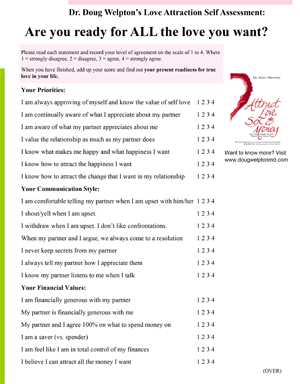Phil was having difficulty being intimate in his marriage. He pulled back from having sex for fear of being rejected. His wife was the one person with whom he shared himself. Without her, he was alone and lonely. He had all his eggs in one basket. Right now he and his wife could not talk without provoking painful feelings in each other. Phil’s responses felt like shaming criticisms to his wife.
As he grew more comfortable in counseling Phil courageously shared his story. His father was an abusive man. Phil’s greatest pain was watching his father beat his older brother. Phil’s turn to get beaten came as he grew older. “I became old enough to qualify for beating,” was the way he put it. He said it still hurt more to watch his father hit his brother. While his older brother also beat up on Phil, he was the closest person to a parent Phil knew growing up.
Phil’s father was an out-of-control pastor. He had affairs with women in his congregation. His wife was frightened of him but finally stood up to him to divorce him when Phil was 15. By that time Phil’s older brother had left home leaving Phil to look after his mother. Frightened and needy herself she turned to Phil to be a replacement for his father—to act like the head of the family looking after his mother and his younger sister. His sister had not been beaten. She had definitely been emotionally abused as “Daddy’s little girl.”
Phil, too, was emotionally abused by his mother when she treated him like a surrogate spouse. He was expected to act like an adult when he was still an adolescent, to take care of his mother when she was supposed to take care of him. A functional family is one in which the parents take care of the children. In a dysfunctional family the children take care of the parents.
Phil was deeply ashamed by his father’s out of control behavior with his congregation. He felt intense shame over his parents’ divorce. As a sixteen year old he withdrew into himself and stopped dating his girlfriend, who was his closest relationship now that his brother was gone.
By the time he was twenty Phil had married a girl who had also been abused. They took turns taking care of each other. They didn’t have children. Their hands were already full just caring for each other. Eventually they divorced.
When forced by his abusive behavior to leave his ministry, Phil’s father moved on to become a counselor in charge of a reform school for boys. He took delight in excessively controlling the lives of his subjects and punishing them abusively.
Phil had forgiven his father and stayed in touch with him. He made visits to see him. When he heard from his father how he was treating the boys at the reform school, Phil gathered his courage to confront him. He told his father he should resign his position at the reform school. Phil wanted to stop his father from abusing the boys. He wanted to protect the boys from his father, and he wanted to protect his father from himself. He hoped to stop his father from doing more harm to his own self-respect.
Later that night Phil’s father drove himself to his favorite place in the nearby countryside. He left his car and walked up the road until he found a place to sit. He took out a knife. He slashed his wrists and bled to death.
When Phil found out the next day he was shocked. He felt mortified. He blamed himself for causing his father to commit suicide. His brother and his sister blamed him too. For more than twenty years Phil has carried this guilt and remorse with him. As he told me about his father’s slashing his wrists guilt and shame came over him. His pain was palpable.
Later the same day he learned about his father’s suicide, Phil learned that the woman his father was living with had packed his bags and sent him away that night. She had just learned that Phil’s father had sexually abused one of her granddaughters.
Have you ever loved someone and did what you thought was the right thing to do by confronting them about their shameless behavior? Didn’t it require courage on your part to put your relationship with this person you love at risk for fear they would misunderstand you? Phil walked through that fear to do what he thought was right for his father and right for the boys at the school.
As Phil talked an old saying came to my mind: “No good deed goes unpunished.” I had learned this adage from a man I once counseled who had survived a painful childhood. I don’t believe the world works this way spiritually, but at times events can appear to work like this. I believe Phil was a better person for having the courage to confront his father to keep him from further guilt and shame for his abusiveness. I believe, as well, he was a better human being for attempting to protect the reform school boys from further abusive punishments.
For me the pain was that Phil “bought into” the unjust judgments of his Inner Critic that were reinforced by his brother and sister. Phil said he was his own worst enemy. At one time or another most of us are. When someone kills himself there is ample pain to go around. There is ample guilt too. Everyone who had a relationship with that person usually asks themselves: did I have anything to do with it? Could I have caused it? Could I have prevented it?
The truth is that no one can make another person kill himself. When a person commits suicide that is a decision only that person can make. Phil did not tell his father to kill himself. Neither did his father’s companion when she told him he had to move out. Suicide may have been the only way Phil’s father found to stop himself.
What Phil needed was to be seen accurately. Instead of being blamed for his father’s death, Phil needed to be appreciated for caring enough for his father to try to stop him from continuing to abuse people. He needed to be appreciated for trying to protect the boys from being abused. He needed to be appreciated for caring enough about his father to put his relationship at risk of being misunderstood by his father. He needed to be appreciated for urging his father to act in a way that would have caused him to respect himself more instead of less.
We do people a great disservice when we join their Inner Critic which is ready to believe the worst about them. People who are abused as children often believe the worst about themselves. It is God speaking through us that instead helps us to see the best in them. Having confessed and confronted his shame-based beliefs about himself, Phil may now be free to see himself in a new light: to see his courage and love accurately and to respect himself for acting on them.
After twenty years of carrying his burden of shame and guilt Phil began to live as a free man. He took the risk of being very vulnerable by telling his story and sharing his pain. Recovery from shame requires telling others what has caused you shame. Sharing puts you at risk that others will shame you again. Having others see you accurately helps validate your reality. Being appreciated for your caring and your courage affirms taking the risk of being seen and known.
Phil began to emerge from his shell. He began to recover from his shame. He started on the path of reconciliation with his wife. She knew his pain and his story and loved him from hearing it again. His vulnerability allowed her to show him her love. As he opened his heart she moved toward him. She put her hand on his arm and they looked briefly into each others eyes. Love is about taking a journey together. Resonating together is the first step.
To read more stories like Phil’s to help you with your marriage buy Dr. Doug’s new book “Attract Love, Intimacy & Money.” You can purchase it on this website as an ebook or as a softcover, or you can order it on Amazon including a hardcover copy.
How to Avoid being Your Own Worst Enemy in Your Marriage
Download Dr. Welpton’s Audio Collection
Audios
CD1: Financial Infidelity & Money
CD2: Is my Partner the Right Person for Me?
CD3: To Stay or Not to Stay: Considerations before Divorcing
CD4: Stop Arguing for the Sake of Your Relationship


